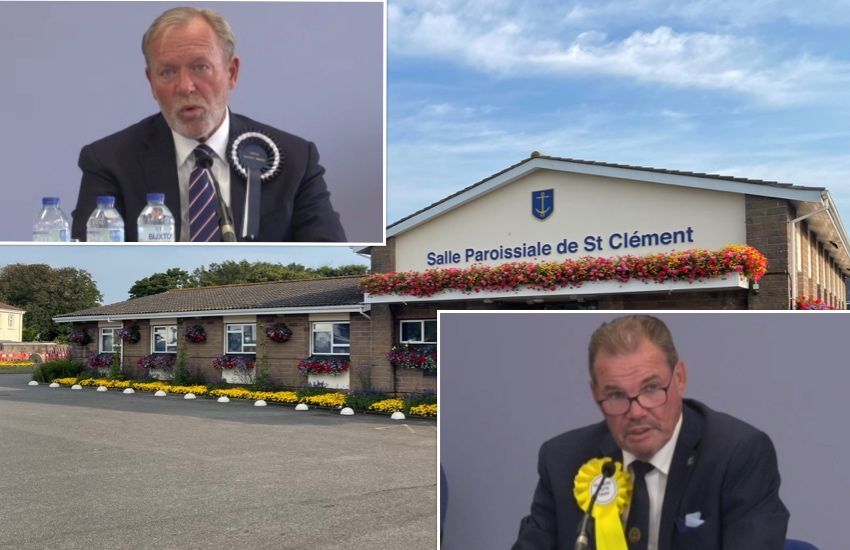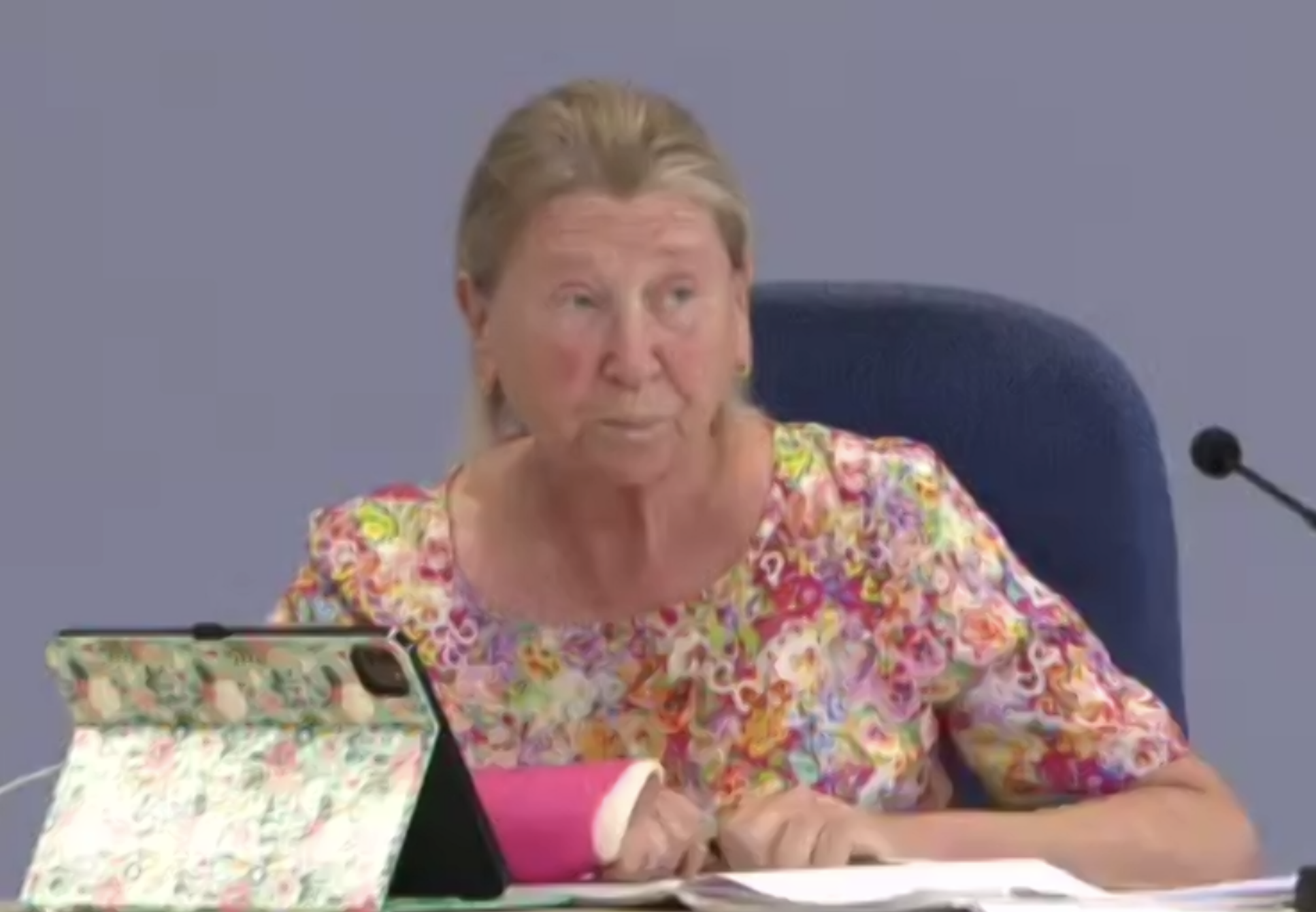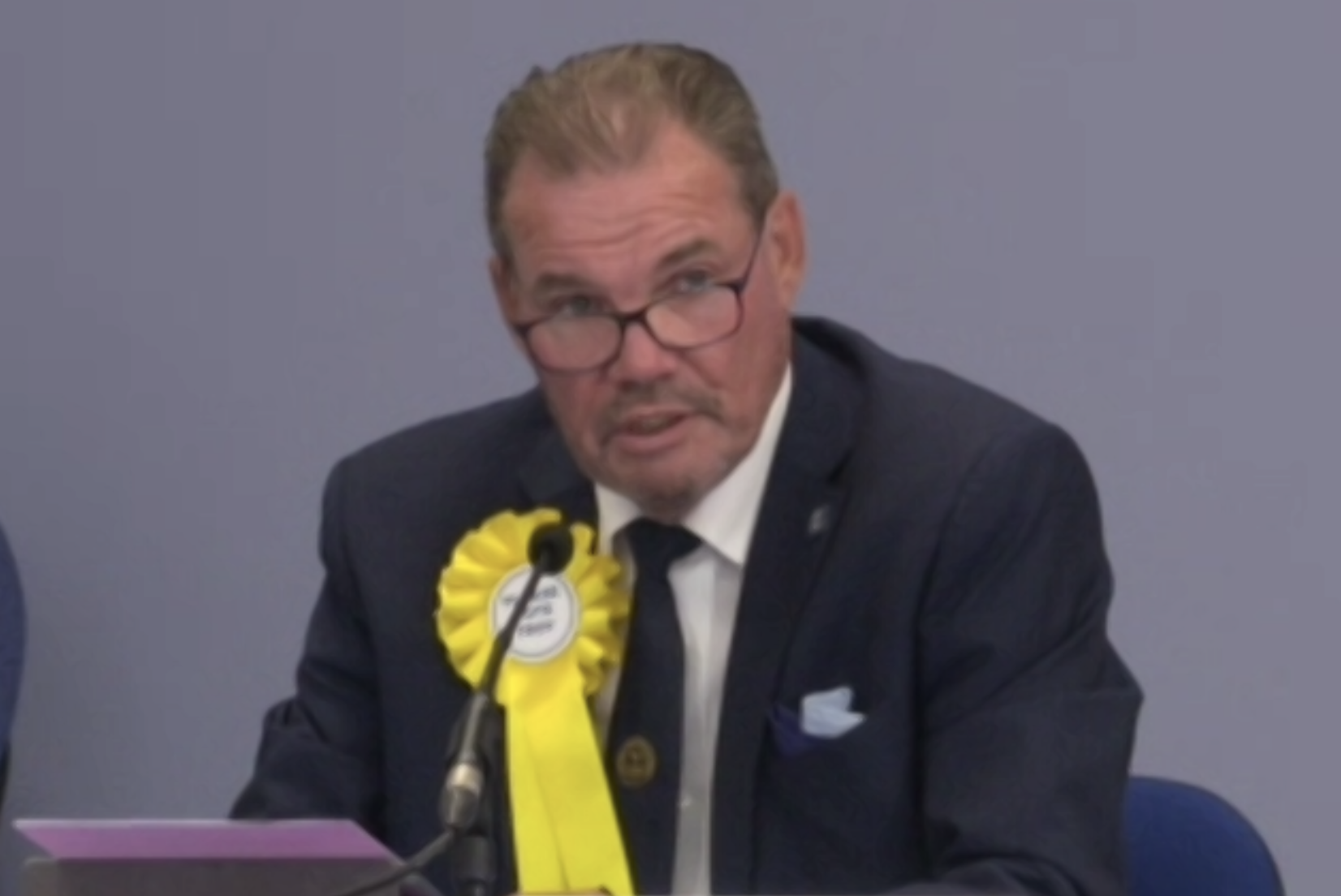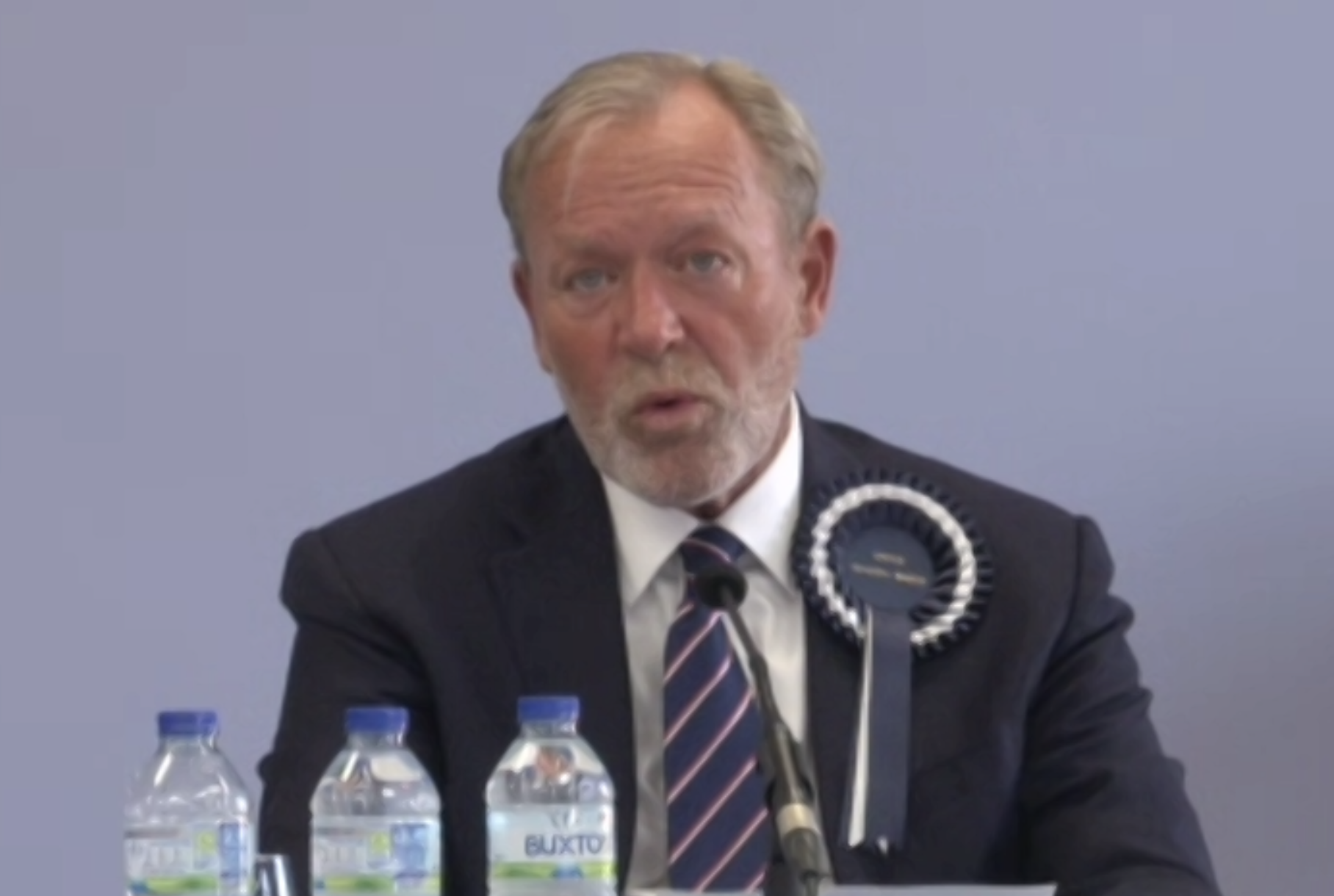


St. Clement staged Jersey’s first online hustings last night in the contest to become the Parish’s next Constable.
The election is to find someone to complete the term of the former Home Affairs Minister, Len Norman, who died earlier this year. The winning candidate will be in office until the General Election on June 22nd next year.
Former Parish Deputy Simon Brée, and ex-hotelier Marcus Troy are both standing for the post.
Last night was the traditional hustings meeting, with a small number of physically distanced parishioners in the Parish Hall, and others joining the meeting on Zoom, and watching on various social media channels.
The meeting also had a specified time period for questions from young parishioners.
You can watch the whole hustings HERE, but the main topics covered were as follows.
Neither candidate said they would join a political party, as they felt it might undermine their ability to put the Parish first.

Pictured: the meeting was chaired by the Senior Procureur, Sue Pearmain.
Simon Brée said he would build a network of dedicated cycle and walking paths, which didn’t run near current roads, and were all interconnected. He said the Parish would need to work with land-owners to deliver it, and look for sponsorship to fund it.
Marcus Troy called for a slower pace of life, including for traffic, combined with much better education on the subject. He said he would bring in car stickers saying “we’re slowing down in St. Clement.” He said he would also support roadside recycling collection, and having a “cross-parish” think-tank involving young parishioners.
Simon Brée said the government mantra of “putting children first” wasn’t resulting in more school places. He wanted the Parish to get more involved in decisions about education affecting St Clement, and take more control.
Marcus Troy said the Parish needed more school space, because of the increase in population. He would push for more places for both secondary and primary places.
Both candidates focused on curbing inward migration in order to reduce the upward pressure on house prices.
Simon Brée said the government was unwilling to tackle the problem of inward migration. He suggested that the island might need to investigate the possibility of giving ‘locals’ priority over ‘non-locals’ to help young people onto the housing ladder.
Marcus Troy said the States had failed to deal with the problem for at least three generations. He supported short-term permits for seasonal workers, and suggested that sometimes we are “too kind” to other people, and “not looking after our own.” He also saw a role for shared equity and “house share” schemes.

Pictured: ex-hotelier Marcus Troy proposed setting up a Youth League to provide more actives for young people.
Ex-hotelier Marcus Troy said hoteliers often weren’t making enough money to live, despite working 60 hour weeks, or to invest in their properties, and that was why they were leaving the sector. He said that hoteliers didn’t want to leave, but economic factors were against them. Regeneration of the sector might be possible via camping, yurts, Airbnb, and international chains such as Premier Inn.
Simon Brée argued that the hospitality sector in total made a very small contribution to the island’s economy. He said the island’s future as a tourism destination was now gone, and the mid-market hotel offering just wasn’t worth supporting any more.
Marcus Troy suggested forming a youth league, to provide activities, such as odd jobs, for young people, and involve visits to Ramsar sites or the JEC. It could be looked after by three to five retired pensioners. It might involve teaching bee-keeping or foraging lessons.
Simon Brée said young people didn’t want to be told what to do by “old fogeys” – instead they should be the ones suggesting the ideas. He did suggest providing a place to teach young people to drive, before they were legally able to do so on the road.

Pictured: former Deputy Simon Brée opposed building the new hospital at Overdale.
The new hospital
Simon Brée said he would have supported a twin-site option combining Gloucester Street and St. Saviour’s hospital. He described the current plans as a “vanity project” for ministers, and suggested that their real plan was to stimulate “health tourism.” He warned that the current project was too expensive, as once borrowing costs are factored in, it could rise to more than £1.7 billion. He didn’t support building at Overdale.
Marcus Troy also said Overdale was the wrong site, and he preferred St. Saviour’s hospital, with a new road to connect it. He also suggested that the value of the current site, once “done up” would be around £300m, and that could offset the costs of the new facility – which could be funded via a bond - with a French company to build it. He also proposed using Fort Regent to release other sites, such as Highlands.
Marcus Troy argued that like-for-like development only is ok, but not on green fields or agricultural land. He said the Parish had taken the sprawl from St. Helier, and taken more than its fair share of new homes. He believed that innovations such as AI would slow down population growth. He said the island took many wealthy residents, and he would increase tax to put some of them off coming to the island.
Simon Brée said he would never say “no more building” as we needed homes and had a growing population, but he would focus on ‘brown field’ sites like old greenhouses, rather than ‘green fields'. He said St. Clement had become a ‘dormitory’ parish for St. Helier, and he would oppose any large-scale developments.
Both candidates confirmed they wouldn’t take a main Government role, if asked, as they wanted to focus on the Parish.
Simon Brée said the current government was one of the worst the island had had for many, many generations.
Marcus Troy said he may take a minor role, as long as he could complete his Parish duties first.
Comments
Comments on this story express the views of the commentator only, not Bailiwick Publishing. We are unable to guarantee the accuracy of any of those comments.